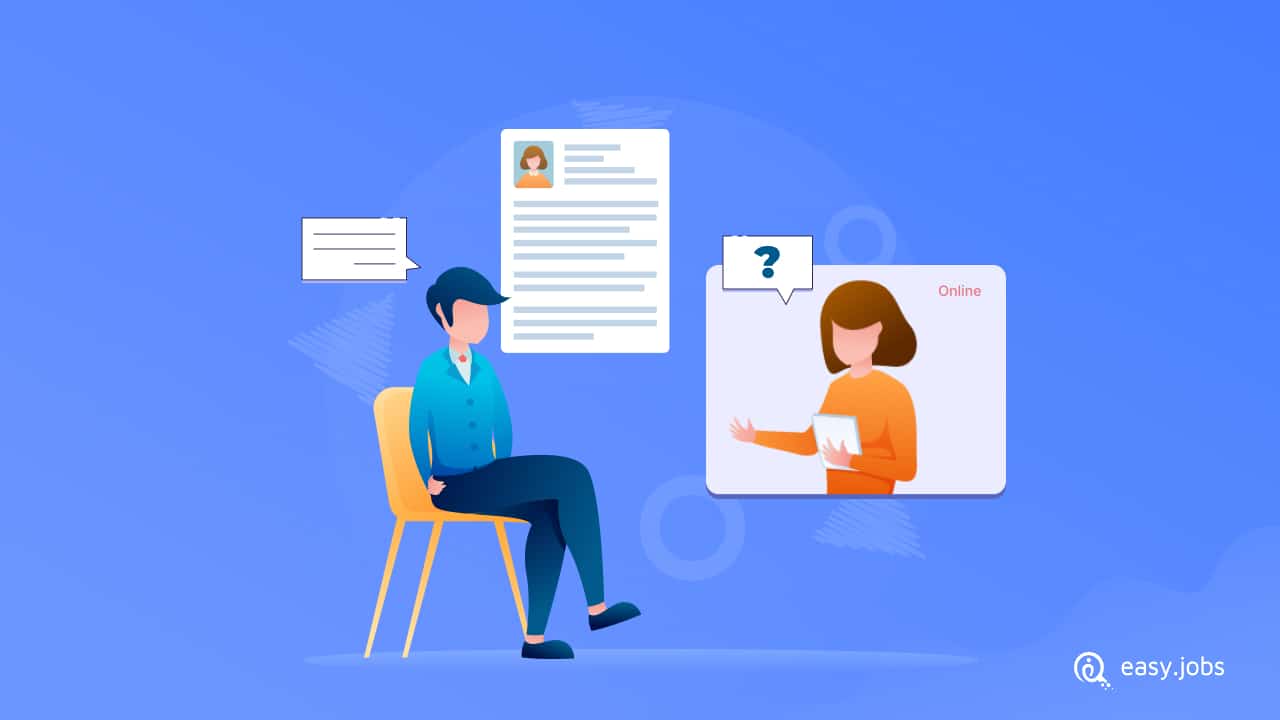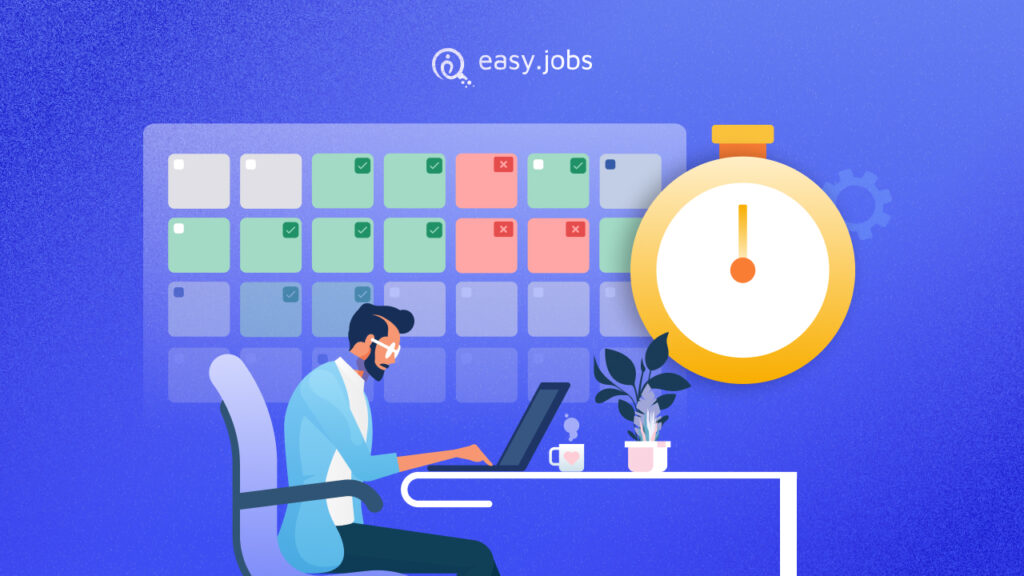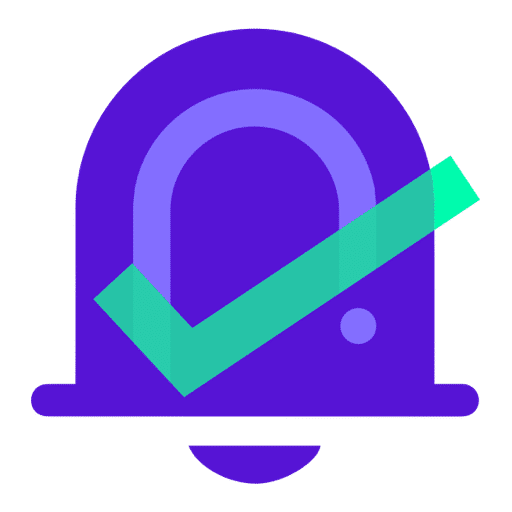Pre-screening interviews can be very powerful in the HR department’s arsenal to weed out the best candidates. And these help hiring managers make informed decisions faster. By asking the right pre-screening interview questions, HR can quickly identify which candidates are the most promising and which ones are not a good fit for the job.

Why Does Recruiter Call For Pre-Screening Interviews?
Pre-screening interviews are usually driven by HR personnel over the phone. This helps to narrow down the pool of candidates prior to an in-person interview. HR calls for such questions in order to determine if a candidate is a good fit for the position before moving them forward in the hiring process. This can help streamline the hiring process and ensure that only the most qualified candidates are invited for further consideration.
The pre-screening interview questions allow recruiters to gather basic information about a candidate’s qualifications, experience, and skills and assess their interest level in the position. By asking these questions before scheduling an in-person or virtual interview, recruiters can save time and resources by eliminating candidates who are not a good match for the position.
Advantage Of Pre-Screening: The First Step To Hiring Right

An important step in the hiring process that can help companies identify the best candidates for the job and improve the hiring outcomes is pre-screening interviews. It has a number of advantages in the hiring process. Take a look at the below.
Cost-Effective And Time-Saving
Pre-screening candidates can save time and money for both the company and the candidates. By identifying qualified candidates early in the hiring process, the company can avoid investing time and resources in candidates who may not be a good fit for the position.
Enhancement Of Hiring Outcomes
Pre-screening can help ensure that the candidates invited for interviews are qualified for the position and have the necessary skills and experience. This can improve the quality of hires and reduce turnover rates.
Better Candidate Experience
By pre-screening candidates, the recruiter can make sure that candidates are only invited to an interview if they are a good match. This can help prevent candidates from wasting their time and feeling frustrated with the hiring process.
Compliance With Hiring Regulations
Pre-screening can help companies comply with hiring regulations and avoid discrimination in the hiring process. By using objective criteria to evaluate candidates, companies can ensure that they are selecting the best candidates based on their qualifications and experience.
Creating A Better Interview Process: 30 Pre-Screening Questions

A well-designed interview process is essential for identifying the best candidates for a job. As part of this process, pre-screening interview questions can help employers evaluate a candidate’s qualifications, experience, and fit for the role. Here are 30 pre-screening questions to consider when developing a more effective interview process.
Previous Work Experience Related Queries
Asking pre-screening questions can quickly determine if the candidate has the necessary skills and experience required for the role. A recruiter can use this information to assess a candidate’s potential as a valuable employee by gaining a comprehensive understanding of the candidate’s career trajectory and accomplishments.
By discussing their previous work experience, the hiring manager can also begin to establish a rapport with the candidate and create a foundation for a more detailed conversation about their qualifications and how they could fit into the team. Below questions can be asked in the pre-screening interview session.
- What relevant experience do you have in this field?
- What skills do you possess that are applicable to this position?
- What software programs or tools are you proficient in using?
- Can you provide examples of successful projects you’ve completed in the past?
- Can you describe a project or initiative that you led in your previous job, and what was your role in its success?
- How did you prioritize and manage your workload in your previous job, and what strategies did you use to stay organized and efficient?
Behavioral And Situational Questions
By incorporating behavioral and situational questions into pre-screening interviews, hiring managers can make more informed decisions about which candidates to move forward in the hiring process. Behavioral questions ask about past experiences, while situational questions ask about hypothetical scenarios.
The candidate’s responses can reveal their problem-solving abilities, decision-making skills, communication style, and critical thinking. This approach can help identify the most qualified candidates early on and save time and resources in the hiring process. The recruiter can ask the questions below.
- Describe a challenging situation you have faced in the workplace and how you resolved it.
- Give an example of a time when you had to think outside the box to solve a problem.
- Can you describe a time when you had to deal with a difficult customer or client?
- Can you tell me about a project you worked on that you’re particularly proud of? What was your role, and what did you do to ensure its success?
- If you were working on a team project and one of your team members wasn’t pulling their weight, what steps would you take to address the situation?
- Can you describe a time when you had to resolve a conflict with a coworker or supervisor? How did you handle the situation?
Questions To Accessing Company Fit

These questions related to the work environment can help assess whether a candidate is a good fit for the company culture and work environment. By asking about their ideal work environment and how they handle stress, the interviewer can determine whether the candidate’s preferences and coping strategies align with the company’s culture and values. Questions can be like below.
- What attracted you to this company and this position?
- Can you describe your work style and how you like to collaborate with others?
- Can you describe a company culture you’ve thrived in before?
- What are your long-term career goals, and how does this position align with them?
- Can you tell me about a time when you had to adapt to a new work environment and how did you approach the transition?
- How do you prefer to receive feedback on your work, and how do you think our company’s feedback culture would fit with your preferences?
Deadline Driven Questions
Data-driven questions in pre-screening can be helpful in assessing a candidate’s ability to use data to make informed decisions and solve problems. These questions can help a recruiter evaluate a candidate’s analytical skills and ability to work with data effectively.
Have a look at the questions below. By asking these questions in pre-screening, recruiters can identify candidates who are well-suited for data-driven roles and who have the potential to excel in these positions.
- How do you prioritize competing tasks with tight deadlines?
- Describe a time when you completed a project with a tight deadline.
- How do you ensure high-quality work under tight deadlines?
- Have you ever requested a deadline extension? How did you handle it?
- How do you manage stress and stay focused under tight deadlines?
- Provide examples of projects completed on time despite obstacles.
Salary And Compensation-Related Questions
Asking about salary and compensation during pre-screening can be beneficial for both employers and candidates. For employers, it can help ensure that the candidate’s salary expectations align with the position and budget. It can also provide an opportunity to discuss any benefits or perks that may be offered with the position, helping to attract top talent.
On the other hand, discussing salary and compensation early on in the process can help the candidates to set realistic expectations and ensure that the position is a good fit financially. It can also provide an opportunity for candidates to negotiate and advocate for fair compensation, an important aspect of job satisfaction and retention.
However, it’s important to approach these conversations with transparency and professionalism to avoid any misunderstandings or miscommunications. Recruiters can ask the below questions during pre-screening interviews.
- What is your salary expectation for this position?
- Are you open to negotiating salary or other compensation benefits?
- What was your most recent salary, and how does that compare to the salary range for this position?
- What benefits or perks are important to you in a compensation package?
- Are you currently considering any other job opportunities or do you have any other offers on the table?
- How do you feel about performance-based compensation, such as bonuses or commissions? Can you provide an example of a time when you were compensated based on your performance?
With these 30 pre-screening interview questions as a starting point, HR professionals can streamline their hiring process and make their job easier while also ensuring they hire the best possible candidates for their organization. Do you think this blog is helpful? Share your If you liked this article, then subscribe to our blog and join us on our Facebook community to interact with more people.









